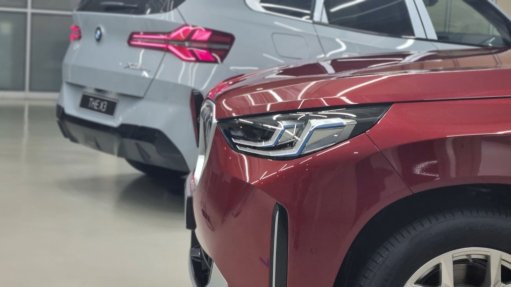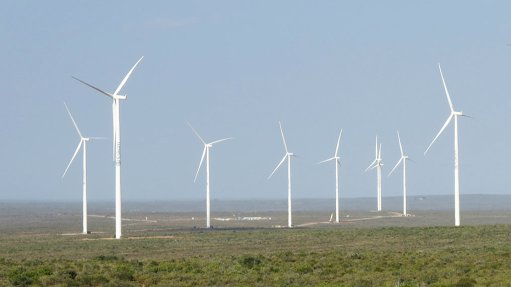Promises make debt, and debt makes promises
Let us start this week’s column with a truth, for at the moment, the truth is as scarce as a hen’s teeth. Truth be told, the title of this piece is borrowed from a Dutch proverb. If there is a single message, a single life lesson, that resonates with me, it is that one should never incur debt of any sort.
That said, living without debt in today’s world is near impossible. When talking about debt, I am reminded of the words of Patrick Rothfuss, an American writer: “As my father used to say, ‘There are two sure ways to lose a friend; one is to borrow, the other to lend.’”
This begs the questions: Are the International Monetary Fund (IMF) and the South African government friends? Was it wise for the South African government to borrow from the IMF, and for the IMF to lend to the South African government?
Rothfuss’ father might himself have borrowed from Hamlet, who himself merely spoke the words of William Shakespeare: “Neither a borrower, nor a lender be; For loan oft loses both itself and friend.”
In contemplating the IMF and the South African government’s ‘friendship,’ the words of Duop Chak Wuol, the editor-in-chief of the South Sudan News Agency, resonate: “African leaders should not turn the continent into a giant collector of donations and loans from wealthy nations – they must find other plausible means to help establish their economic security so as to minimise poverty. This incoherent blunder on the mainland must be scrutinised.”
As for ‘wealthy nations’, you might well replace this phrase with the words ‘international organisation’, without the quotation losing its context or relevance. As a reminder, the IMF is an international organisation that is headquartered in Washington DC. It comprises 189 countries working to foster global monetary cooperation, secure financial stability, facilitate international trade, promote high employment and sustainable economic growth, and reduce poverty around the world, while periodically depending on the World Bank for its resources.
To contextualise, the World Bank is an international financial institution that provides loans and grants to the governments of poorer countries for the purpose of pursuing capital projects. The World Bank comprises two institutions, the International Bank for Reconstruction and Development, and the International Development Association. These organisations comprise two-thirds of the Bretton Woods trilogy, the third being the World Trade Organisation.
So, is it a friendship of one-to-one, or one-to-three? A friendship with King Ghidorah, the mystical Japanese Three-Headed Monster, then?
On July 27, the IMF issued a media release titled ‘IMF executive board approves $4.3-billion in emergency support to South Africa to address the Covid-19 pandemic’. The actual amount is $4.28-billion, or R70.29-billion. This money is for “emergency financial assistance under the Rapid Financing Instrument to support the authorities’ efforts in addressing the challenging health situation and severe economic impact of the Covid-19 shock”. This is 100% of the quota under the Rapid Financing Instrument to meet the urgent balance of payment (BOP) needs stemming from the outbreak of the Covid-19 pandemic.
To clarify, a country’s BOP is defined as the difference between all the money from individuals, firms and government bodies flowing into the country from the rest of the world and the outflow of money from the country in a specified period, usually a quarter or a year.
Now South Africa is indebted to an international organisation – South Africa’s ‘lender(s) in last resort’, if you will, since who else would have lent South Africa the money, or from whom would South Africa have been able to secure the money? Not from the markets – it would not be able to do so.
A question: How will South Africa ever be able to repay its debt?
Article Enquiry
Email Article
Save Article
Feedback
To advertise email advertising@creamermedia.co.za or click here
Press Office
Announcements
What's On
Subscribe to improve your user experience...
Option 1 (equivalent of R125 a month):
Receive a weekly copy of Creamer Media's Engineering News & Mining Weekly magazine
(print copy for those in South Africa and e-magazine for those outside of South Africa)
Receive daily email newsletters
Access to full search results
Access archive of magazine back copies
Access to Projects in Progress
Access to ONE Research Report of your choice in PDF format
Option 2 (equivalent of R375 a month):
All benefits from Option 1
PLUS
Access to Creamer Media's Research Channel Africa for ALL Research Reports, in PDF format, on various industrial and mining sectors
including Electricity; Water; Energy Transition; Hydrogen; Roads, Rail and Ports; Coal; Gold; Platinum; Battery Metals; etc.
Already a subscriber?
Forgotten your password?
Receive weekly copy of Creamer Media's Engineering News & Mining Weekly magazine (print copy for those in South Africa and e-magazine for those outside of South Africa)
➕
Recieve daily email newsletters
➕
Access to full search results
➕
Access archive of magazine back copies
➕
Access to Projects in Progress
➕
Access to ONE Research Report of your choice in PDF format
RESEARCH CHANNEL AFRICA
R4500 (equivalent of R375 a month)
SUBSCRIBEAll benefits from Option 1
➕
Access to Creamer Media's Research Channel Africa for ALL Research Reports on various industrial and mining sectors, in PDF format, including on:
Electricity
➕
Water
➕
Energy Transition
➕
Hydrogen
➕
Roads, Rail and Ports
➕
Coal
➕
Gold
➕
Platinum
➕
Battery Metals
➕
etc.
Receive all benefits from Option 1 or Option 2 delivered to numerous people at your company
➕
Multiple User names and Passwords for simultaneous log-ins
➕
Intranet integration access to all in your organisation

















